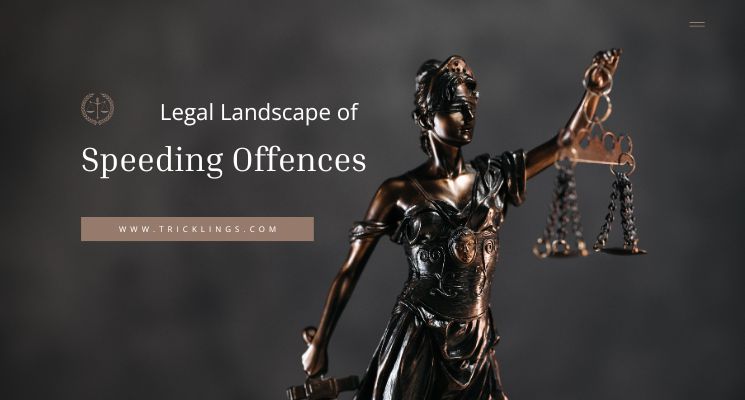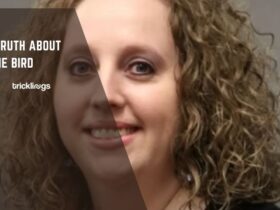Navigating the Legal Landscape of Speeding Offences

Speeding is one of the most common driving offences in the UK, with thousands of motorists caught exceeding the speed limit each year. While a minor speeding incident might seem like a trivial matter, the consequences can be severe, ranging from fines and penalty points to disqualification from driving. In certain situations, enlisting the help of a speeding solicitor can be crucial in navigating the complex legal landscape and achieving the best possible outcome.
When to Consider Legal Representation
While not every speeding case requires the assistance of a solicitor, there are several scenarios in which seeking legal advice can be extremely beneficial:
- Facing serious consequences: If you have been caught speeding excessively or have accumulated multiple offences, you may be at risk of facing harsher penalties, such as a lengthy disqualification or even a prison sentence. In these cases, having a skilled speeding solicitor by your side can make a significant difference in the outcome of your case.
- Challenging the charges: If you believe that you have been wrongfully accused of speeding or that there were mitigating circumstances that led to the offence, a solicitor can help you build a strong defence. They can scrutinize the evidence, challenge the prosecution’s case, and present your side of the story effectively in court.
- Protecting your livelihood: For some individuals, a speeding conviction can have far-reaching consequences beyond the legal penalties. If you rely on your driving license for your job or have a professional reputation to uphold, a solicitor can work to minimize the impact of the charges on your life and career.
The Expertise of Speeding Solicitors
Speeding solicitors are legal professionals who specialize in defending clients accused of speeding offences. Their in-depth knowledge of traffic laws, court procedures, and defence strategies allows them to provide comprehensive legal support tailored to your specific case.
Some of the key ways in which a speeding solicitor can assist you include:
- Analyzing the evidence: A solicitor will carefully review all the evidence against you, including police reports, speed camera footage, and witness statements. They will look for any inconsistencies, procedural errors, or mitigating factors that could strengthen your defence.
- Challenging the prosecution: If there are grounds to do so, a solicitor can challenge the validity of the evidence or the procedures followed by the police. For example, they may question the accuracy of the speed camera, argue that proper signage was not in place, or raise doubts about the identity of the driver.
- Negotiating with the authorities: In some cases, a solicitor may be able to negotiate with the prosecution to reduce the charges or agree on a more lenient penalty. They can also advise you on whether to plead guilty or not guilty based on the strength of the evidence and the likely outcome of the case.
- Representing you in court: If your case proceeds to court, a speeding solicitor will provide robust representation, presenting your defence, cross-examining witnesses, and arguing for the most favourable outcome possible.
Weighing the Costs and Benefits
Hiring a speeding solicitor does come with a financial cost, and it’s essential to weigh this against the potential benefits. In minor cases where the consequences are likely to be limited to a small fine and a few penalty points, legal representation may not be necessary.
However, in more serious cases or when you believe you have a strong defence, investing in a solicitor can be a wise decision. The costs of a conviction, both in terms of legal penalties and the impact on your personal and professional life, can far outweigh the expense of hiring a legal professional.
Ultimately, the decision to hire a speeding solicitor depends on your individual circumstances and the severity of the charges against you. If you are unsure about whether legal representation is necessary, it’s always a good idea to seek a consultation with a solicitor who can assess your case and provide tailored advice.
Alternatives to Court for Speeding Offences
Getting caught speeding can be a stressful experience, but it’s important to know that going to court is not always the only option. Depending on the severity of the offence and your previous driving record, there are alternatives available that can help you avoid the more serious consequences of a court appearance.
Speed Awareness Courses
One of the most common alternatives to going to court for minor speeding offences is attending a speed awareness course. These courses are designed to educate drivers about the dangers of speeding and encourage safer driving habits.
Eligibility Criteria
To be eligible for a speed awareness course, you must meet certain criteria:
- You must not have attended a speed awareness course in the past three years.
- Your speeding offence must be considered minor, typically falling within the range of 10% + 2mph to 10% + 9mph over the posted speed limit.
Consequences
Attending a speed awareness course has several advantages over going to court:
- You will not receive points on your driving licence.
- While you will still have to pay for the course, which typically costs more than the £100 fine associated with a Fixed Penalty Notice, it can be a more attractive option for those wishing to keep their driving record clean.
- Some insurance companies may increase your premium for attending the course, but the increase is likely to be smaller than if you had received points on your licence.
Fixed Penalty Notices (FPNs)
Another alternative to going to court is accepting a Fixed Penalty Notice (FPN). This option is typically available for more minor speeding offences.
Consequences
If you choose to accept an FPN, you will face the following consequences:
- You will receive a £100 fine.
- Three points will be added to your driving licence, which will remain there for a minimum of four years.
- If you accumulate 12 or more points within a three-year period, you can be disqualified from driving.
When to Consider Hiring a Lawyer
While the alternatives to court can be attractive for minor speeding offences, there are situations where seeking legal advice from a qualified lawyer may be in your best interest.
Serious Offences
If you are facing more severe penalties, such as a higher fine or disqualification from driving, it is advisable to hire a lawyer. They can argue for special reasons or exceptional hardship to help mitigate the consequences of your offence.
Multiple Offences
If you have accumulated multiple points on your licence and are at risk of a totting up ban (disqualification due to accumulating 12 or more points within three years), a lawyer can help you navigate the legal process and potentially reduce the length of the ban.
New Drivers
New drivers who accumulate six or more points within two years of passing their test face having their licence revoked. If you find yourself in this situation, a lawyer can provide guidance on how to proceed and help you understand your options.
Conclusion
When caught speeding, it’s crucial to understand that going to court is not always necessary. For minor offences, attending a speed awareness course or accepting a Fixed Penalty Notice can be viable alternatives that help you avoid the more serious consequences of a court appearance.
However, if you are facing more severe penalties or have a history of multiple offences, seeking the advice of a qualified lawyer can be invaluable in navigating the legal process and working towards the best possible outcome.
Ultimately, the decision to go to court or pursue an alternative option will depend on your individual circumstances. By understanding your options and seeking professional advice when necessary, you can make an informed decision that best serves your interests.
























